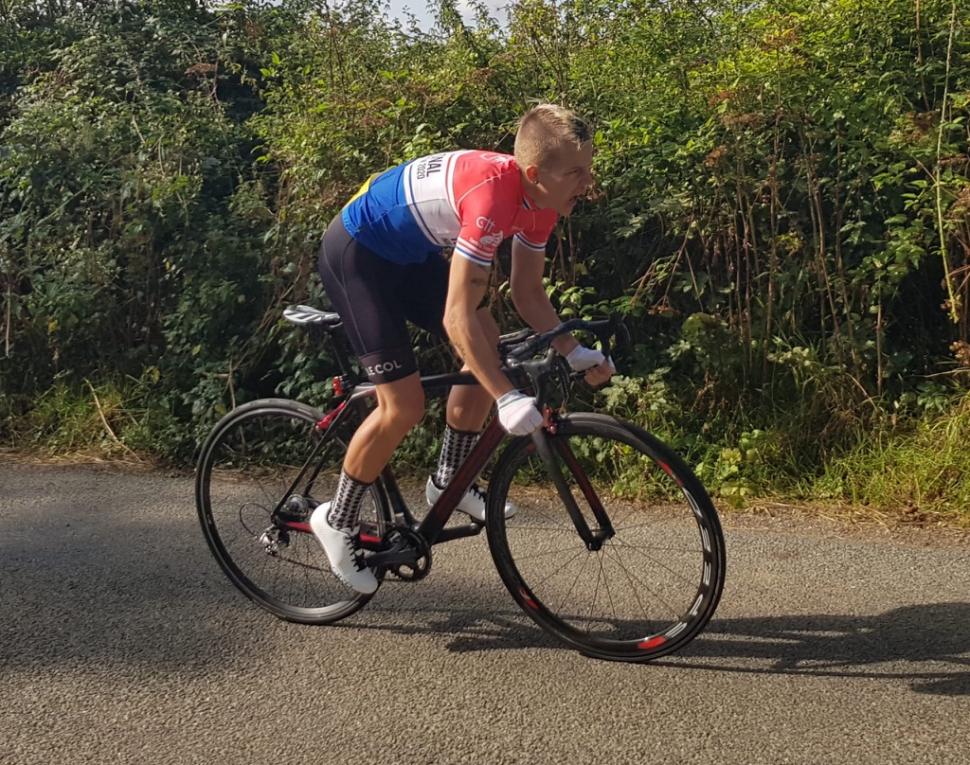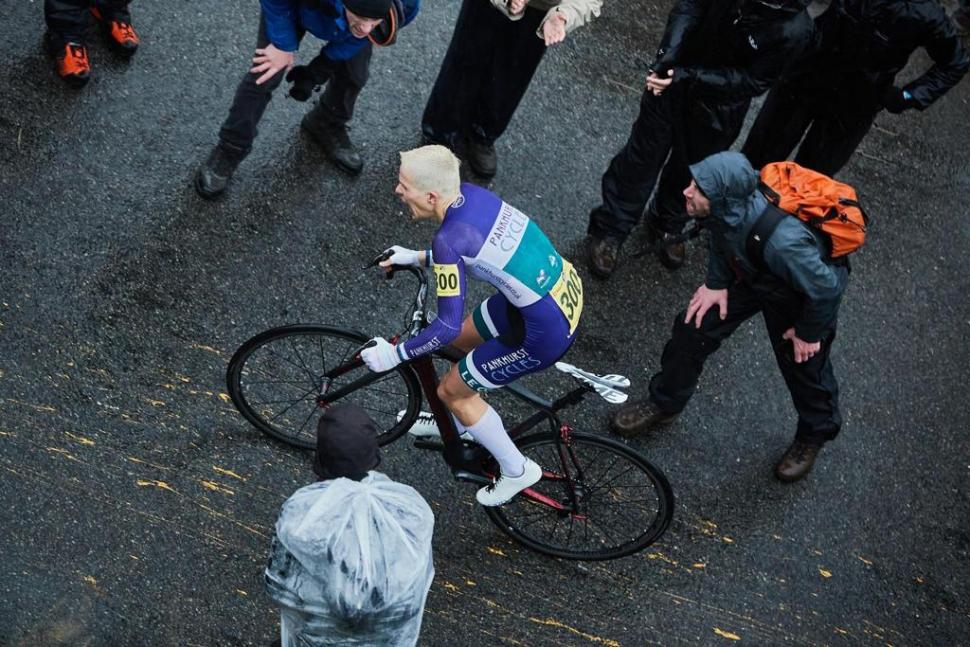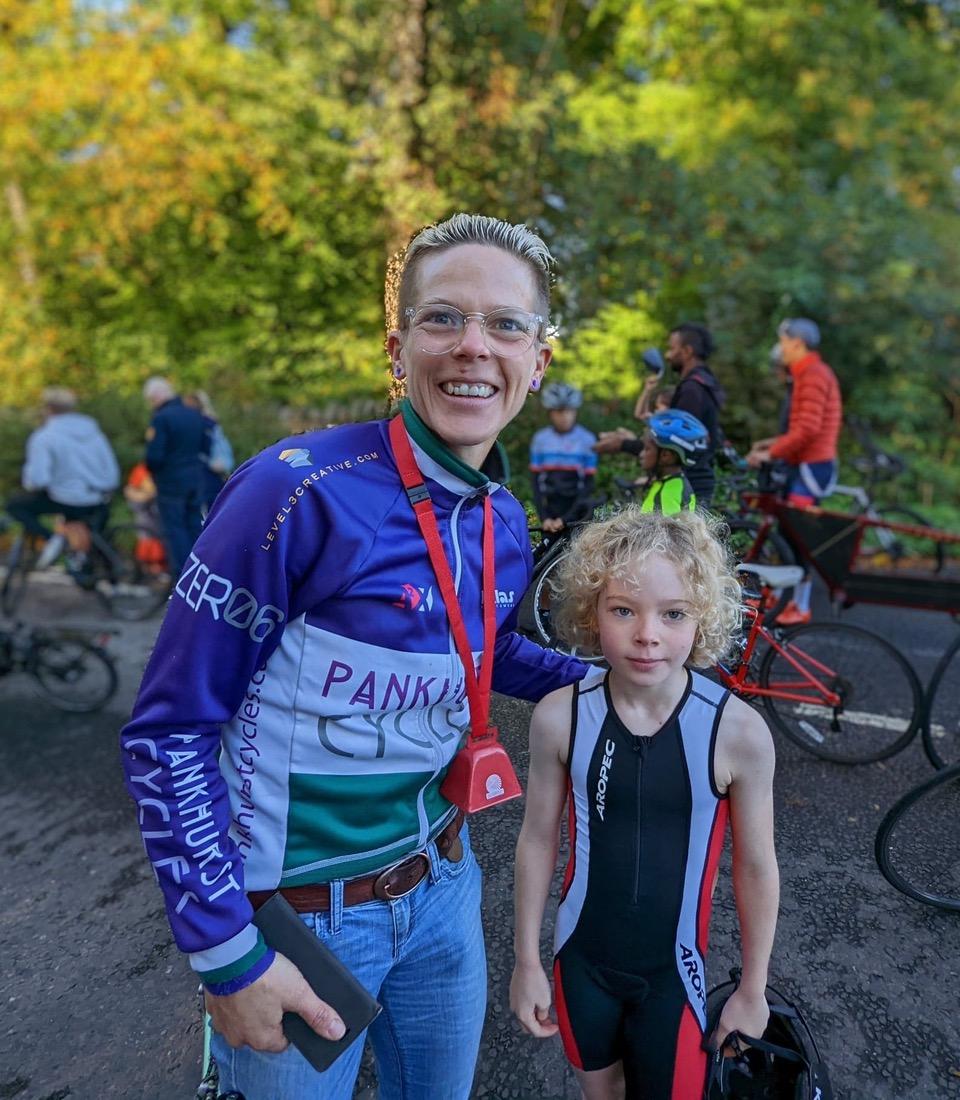- News
- Reviews
- Bikes
- Components
- Bar tape & grips
- Bottom brackets
- Brake & gear cables
- Brake & STI levers
- Brake pads & spares
- Brakes
- Cassettes & freewheels
- Chains
- Chainsets & chainrings
- Derailleurs - front
- Derailleurs - rear
- Forks
- Gear levers & shifters
- Groupsets
- Handlebars & extensions
- Headsets
- Hubs
- Inner tubes
- Pedals
- Quick releases & skewers
- Saddles
- Seatposts
- Stems
- Wheels
- Tyres
- Tubeless valves
- Accessories
- Accessories - misc
- Computer mounts
- Bags
- Bar ends
- Bike bags & cases
- Bottle cages
- Bottles
- Cameras
- Car racks
- Child seats
- Computers
- Glasses
- GPS units
- Helmets
- Lights - front
- Lights - rear
- Lights - sets
- Locks
- Mirrors
- Mudguards
- Racks
- Pumps & CO2 inflators
- Puncture kits
- Reflectives
- Smart watches
- Stands and racks
- Trailers
- Clothing
- Health, fitness and nutrition
- Tools and workshop
- Miscellaneous
- Buyers Guides
- Features
- Forum
- Recommends
- Podcast
OPINION
The hill we are climbing: Why I'm defending my National Hill Climb Championship title in the colours of the Suffragettes
 Bithja Jones at Holybourne Hill Climb 2021 (image credit: Toby Davies)
Bithja Jones at Holybourne Hill Climb 2021 (image credit: Toby Davies)Today, on Sunday 30th of October at 12:42, I will be entering into seven minutes of pain and oxygen debt, racing up the Old Shoe in the National Hill Climb Championship in Llangollen together with 400 other riders, 70 of whom are women. My aim is to defend my title.
It’s going to be hard - hill climb racing is always hard - but it’s going to be especially hard because there is such a strong women’s field!
Illy Gardner, Wahoo Endurance Zone p/b Le Col: women’s world record holder in Everesting.
Mary Wilkinson, Team Boompods: super strong road racing season and a consistently strong climber with four silver medals at the Nationals in the last five years.
Rebecca Richardson, Frances Owen and Joanna Blackburn will all do well on such a long and steep climb.
It’s not always been like this. Women only started racing at the National Hill Climb Championship as late as 1998! And it took even longer before we had a first officially recognised women’s champion 2003. And in 2012, silver and bronze medals were awarded to the women for the first time in history. We have come a long way in that short time.
When I first won the Nationals on Streatley Hill in 2020, the race organisers had launched a campaign together with Lauren Pestana and with the help of the hill climber community (#climbhighertogether) to close the gender gap in cycling and fight for more equality.
The result: a record participation of women in the Nationals that went up from 12% to 30%, numerous clubs adjusting prizes to make them equal for men and women and changes in some cycling club’s constitutions to ensure gender equality in the future.
The following year, the epic race up Winnats had 60 female competitors out of 300 overall. The organisers had put the female riders last to show their respect to the women’s race. I was the last rider up. Some spectators started leaving the hill after the fastest men had finished their rides, thinking the race was over.
Luckily there were still hundreds of committed fans on the hill in biblical rain, shouting at us as we were gurning it up the steepest slopes of the pass. Thank you to all of you. Being cheered on like this is the best thing ever when your legs are about to give up and you suffer with oxygen debt. This is what makes the Nationals so special to ride. I had never experienced anything like this before.
This year in Llangollen the women’s race is in between two blocks of male riders with the fastest men being up last to prevent spectators from leaving before the women’s event has even started.
My eight-year-old daughter has raced in two hill climbs. She wants to become National Champion. I hope measures like this will be unnecessary when she rides her first National Championship.
She also wants to ride the Tour de France which is now actually possible thanks to much campaigning by InternationElles, who rode the full Tour de France one day before the men’s race to make the point that if women with full-time jobs and kids can ride it, then professional female cyclists should absolutely have the chance too! And I don’t have to say to my daughter now: sorry, you can’t ride because you are a girl. No one should feel they can’t do something because of their gender!
I will be riding for my team Pankhurst Cycles today. I am very proud to be riding in the colours of the Suffragettes. This is not only so fitting because my team at Pankhurst Cycles is very active in supporting women in the sport of cycling, but also because the bicycle played a massive role in the women’s rights movement and became a tool and a symbol for the emancipation of women.
I am passionate about hill climbing, I am passionate about equality and I am passionate about my daughter’s dreams. I was immensely touched when on a few occasions this season, girls and young women came to me to tell me how I had inspired them to start racing, that they only signed up for the hill climb because they saw my name on the start sheet and asked to have photographs taken with me. It made me very happy and proud of what I had achieved and that it meant so much to other women.
I hope we can keep that momentum going, there is still a long way to go and I believe everyone can help with that as a member of the local cycling club, as organisers of events, as a participant in a race, as spectator on a hill or as reporter and photographer.
We are even stronger together!
Update from the road.cc team: Bithja put in a great performance to finish third behind Illi Gardner in first and Mary Wilkinson in second place. The men's senior winner was Andrew Feather. Full provisional results can be found here.
Bithja Jones is two-times British National Hill Climb Champion. She has a master's degree in Fine Art and works as a teaching assistant in a special needs school. Bithja has got two children, they cycle everywhere and the school run and commute is done on the bike. Bithja started competitive cycling in 2019 when she became track champion at the Reading track league. Bithja races for Pankhurst Cycles.
More Opinion
Latest Comments
- Gus T 6 min 41 sec ago
My wife & I visited Bristol for the 1st time a couple of weeks ago, I was amazed at the congestion caused by the number of single occupancy...
- mctrials23 36 min 24 sec ago
And this is why things like Netflix took off. Because the younger generation couldn't quite fathom how you could be paying £100/month for your sky...
- hawkinspeter 46 min 8 sec ago
https://www.bristolpost.co.uk/news/bristol-news/live-bus-crashes-bridge-bristol-10103689 That bridge really needs some hi-viz
- hawkinspeter 48 min 2 sec ago
Another piece by Faduma Farah: https://www.bristolpost.co.uk/news/news-opinion/why-ive-been-standing-way-10099623
- Rendel Harris 1 hour 11 min ago
"However, one passenger on the bus at the time of the collision, Victoria Lester, who was sitting "right behind the bus doors" reported Lucas's...
- galibiervelo 2 hours 20 min ago
Fantastic event. Amazing champion and last hour wassuper to watch, bar the bottle throw
- David9694 12 hours 24 min ago
+1 on saddle height and also check your lateral alignment - everything should be straight and aligned. My bike fit years ago moved my feet to the...
- froze 12 hours 29 min ago
Everything Lezyne sells are really good, especially their pumps, and the Torque Drive. ...
- wtjs 13 hours 13 min ago
It's not only the UK which suffers from vile louts-VdP is a great athlete who deserves respect!


Add new comment
14 comments
(Post edited - probably not the place for that debate on reflection.)
Congratulations on the result.
It's all a bit Pythonesque with many splits in the suffrage movement (and indeed even in the Pankhurst family). Similar to Malcom X & MLK. The difference with the suff* movement is that the violent side ended up with most of the credit - I think if you ask most people about the campaign for votes for women it's the death of the protestor at the Derby and perhaps force-feeding that's noted, and people feel that Emeline was the hero and primary agent for change. That really isn't the whole story.
Here's a short video showing Bithja in action on Sunday and a brief word with her afterwards:
https://youtu.be/X3XcIs7T0AE
Congrats on the podium!
I visit Pankhurst cycles from time to time, lovely guys. I'd never made the connection between the name and Emmeline.
Nor me and they are one of my local-ish bike shops.
Nice! Best of luck to you.
In these trying times, it's a great idea to look back on the history of the Suffragettes and the politics of disruption to get your voice heard and certainly bicycles are an important symbol of freedom, despite the attempts of certain groups trying to demonise cyclists.
I came across an interesting viewpoint the other day - it doesn't matter "how" people protest, only "what" they are protesting about. So much debate around modern protesters focuses on whether a particular tactic is going to get people on their side or not and whether something is too disruptive for certain people's comfort, but that's all irrelevant. When people protest it is because there is an important issue that is not being addressed and often cannot be successfully addressed with current politicians and their paymasters.
Erm....Yes & No......The 'Suffragettes', as in the Women's Social and Political Union [WSPU], under the leadership of Emmerline Pankhurst arguably put something of a spoke into the wheel of other groups that had come under the banner of the National Union of Women Suffrage Societies [NUWSS] (suffragists). Then, as now a campaign that involves bombs & arson, doesn't tend to win over too many people to a cause & (again arguably) the NUWSS had been getting quite close to some level of 'victory'.
It's a shame that most of the popular history of the movement comes from the perspective of Mrs. Pankhurst - one of those people who was tireless in writing their own 'history' - and writing out almost all of the other actors.
As a very accessible & fascinating introduction to the times I can much recommend "Rebel Girls" by Jill Liddington.
Thanks - I wasn't aware of the differences between the Suffragettes and suffragists. That Pankhurst has dominated the history books is testament to the power of violent protest, though again it should be more relevant that different groups were protesting to get votes for women rather than the lesser disagreements about strategy and tactics.
The Suffragettes/Suffragists - WSPU/NUWSS does at times get very 'Peoples Front Of Judea/Judean People's Front' - at least from our perspective
The 'Pankhurst' supremacy has much to do with her own self advancement. It's a shame that she burried so many other peoples storys.
Just in case anyone is tempted:
https://www.hive.co.uk/Product/Jill-Liddington/Rebel-Girls--How-votes-for-women-changed-Edwardian-lives/6947115
£12 couldn't be better spent.
Other booksellers are available - it's only £2.99 as an ebook from Kobo, Google or that other one.
EBay has some dead tree copies for just over £3 too.
As the saying goes, if the Suffragettes – or the Suffragists – or the women's suffrage movement – had stuck to writing letters, they'd still now be getting regretful replies from their husbands' MPs.
Interesting insight. I do wonder how far we are away from some violent and non-violent protests against the state of the NHS. Sometimes protest *IS* the only way to hold politicians to account.